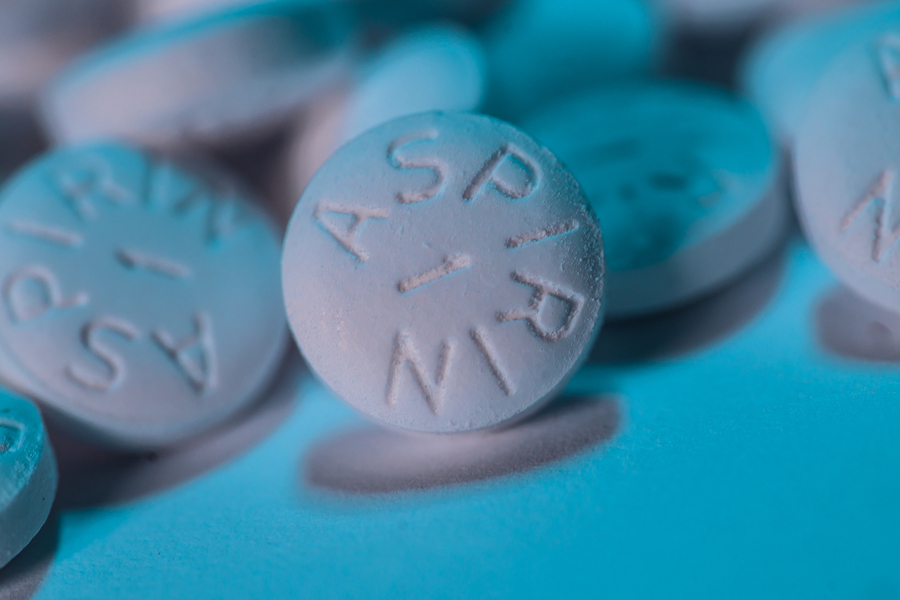Some 29 million people age forty and older take an aspirin every day despite having no known heart disease. However, Harvard researchers reported last week that it may not be a good idea to take aspirin every day for heart attack prevention.
A low daily dose of aspirin is recommended for people who have heart disease or have already had a heart attack or stroke. But for the millions of other people taking it every day as a preventative, the guidelines have changed.
RELATED STORY:
The new guidelines released this year have ruled out taking aspirin regularly for most older adults who don’t have heart disease. They also indicate that younger people should only take it under doctor’s orders.
According to a new study done in 2017 from Harvard and Beth Israel Deaconess Medical Center, it is estimated that 29 million people age forty and older take an aspirin every day even though they have no known heart disease. Of the 29 million people, approximately 6.6 million were taking it on their own without the recommendation of a doctor.
RELATED STORY:
The researchers also reported in Annals of Internal Medicine that almost 10 million people over the age of 70 who don’t have heart disease (about half of them) were taking aspirin every day for prevention.
Dr. Colin O’Brien, a senior internal medicine resident at Beth Israel who led the study, said many patients are confused about this.
RELATED STORY:
Indeed it is confusing, because for years doctors urged people to take advantage of aspirin’s blood-thinning properties to lower the chances of a first heart attack or stroke. But last year, three surprising new studies challenged that belief. The studies were some of the largest and longest to test aspirin in people at low and moderate risk of a heart attack, and found only marginal benefit if any, especially for older adults. Yet the aspirin users experienced markedly more digestive-tract bleeding, along with some other side effects.1
In March, the study prompted the American Heart Association and American College of Cardiology decided to change the guidelines. The new guidelines are as follows:
- People over 70 who don’t have heart disease — or are younger but at increased risk of bleeding — should avoid daily aspirin for prevention.
- Only certain 40- to 70-year-olds who don’t already have heart disease are at high enough risk to warrant 75 to 100 milligrams of aspirin daily, and that’s for a doctor to decide.
- Nothing has changed for heart attack survivors: Aspirin still is recommended for them.
RELATED STORY:
However, there’s no way to know how many otherwise healthy people heard the news about the changed recommendations. O’Brien said:
“We hope that more primary care doctors will talk to their patients about aspirin use, and more patients will raise this with their doctors.”1












